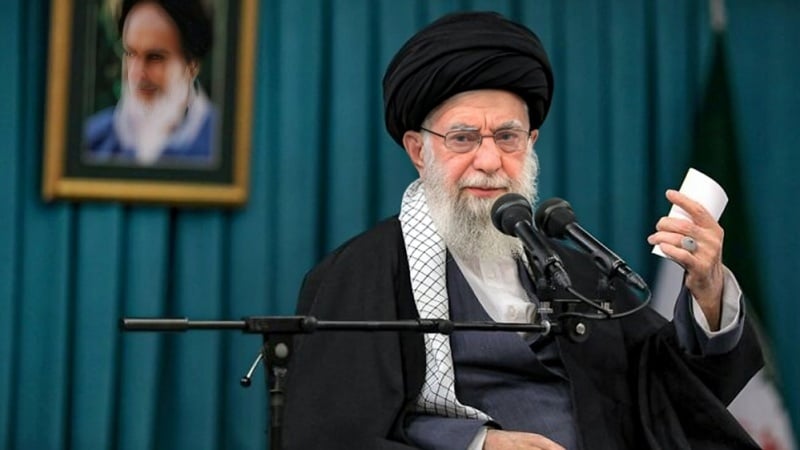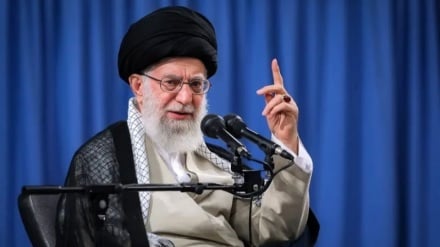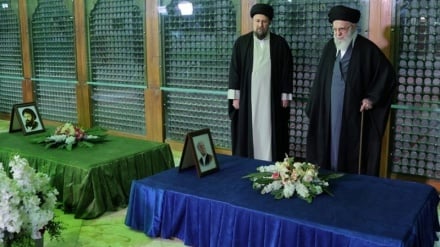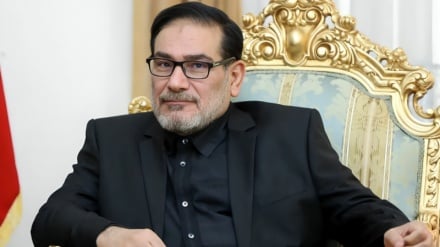Imam Khamenei: Unity of Iranian nation during 12-day war disappointed enemy
-

The Leader of the Islamic Revolution Imam Khamenei
Pars Today – The Leader of the Islamic Revolution, in a speech, stated: “Regarding the unity of the Iranian nation, my first point is that during the twelve-day war, the cohesion and solidarity of the Iranian nation disappointed the enemy.” The Leader emphasized that the enemy realized, from the middle days of the war, that it would not achieve the objectives and goals it had pursued.
On Tuesday evening, in a televised speech addressed to the Iranian nation, Ayatollah Khamenei, the Leader of the Islamic Revolution, stated:
“I find it necessary these days, on the anniversary of the martyrdom of the great mujahid, Martyr Sayyed Hassan Nasrallah, to remember him. Sayyed Hassan Nasrallah was a tremendous asset for the Islamic world — not only for Shia, not only for Lebanon, but a wealth for the entire Muslim world. Of course, this wealth has not been lost. The wealth remains. He is gone, but the wealth he created continues to endure.”
According to Pars Today, quoting IRNA, Ayatollah Khamenei added:
“My first point regarding the unity of the Iranian nation is that in the twelve-day war, the solidarity and cohesion of the Iranian people disappointed the enemy. That is, from the early and middle days of the war, the enemy realized that it would not achieve the objectives and aims it had pursued.”
The Leader of the Islamic Revolution added: “The enemy’s aim was not simply to strike commanders — that was a means. The enemy imagined that by killing military commanders and some influential figures of the system, unrest would break out in the country; in Tehran in particular their agents would turn to rioting and disorder, dragging people — anyone they could — into the streets, and by using the people would create an incident against the Islamic Republic. That was the objective. In other words, the target was the Islamic Republic.”
Ayatollah Khamenei continued: “The enemy’s aim was to disrupt the system — as I said elsewhere, they had even planned for the period after the Islamic Republic, drawing up schemes and plotting. They wanted to create sedition, provoke street unrest, set up factions and uproot the roots of Islam in the country. That was the enemy’s objective.”
The Leader of the Islamic Revolution stated: “Well, that objective was defeated in the very first steps. As for the commanders and others, they were almost immediately replaced, successors were appointed for them, and the order, structure, and discipline of the armed forces remained intact with the same strength and even higher morale.”
The Leader emphasized: “But the people — who were the most influential element — were absolutely not affected by what the enemy intended. Demonstrations did take place, the streets were filled, but they were against the enemy, not against the Islamic system.”


